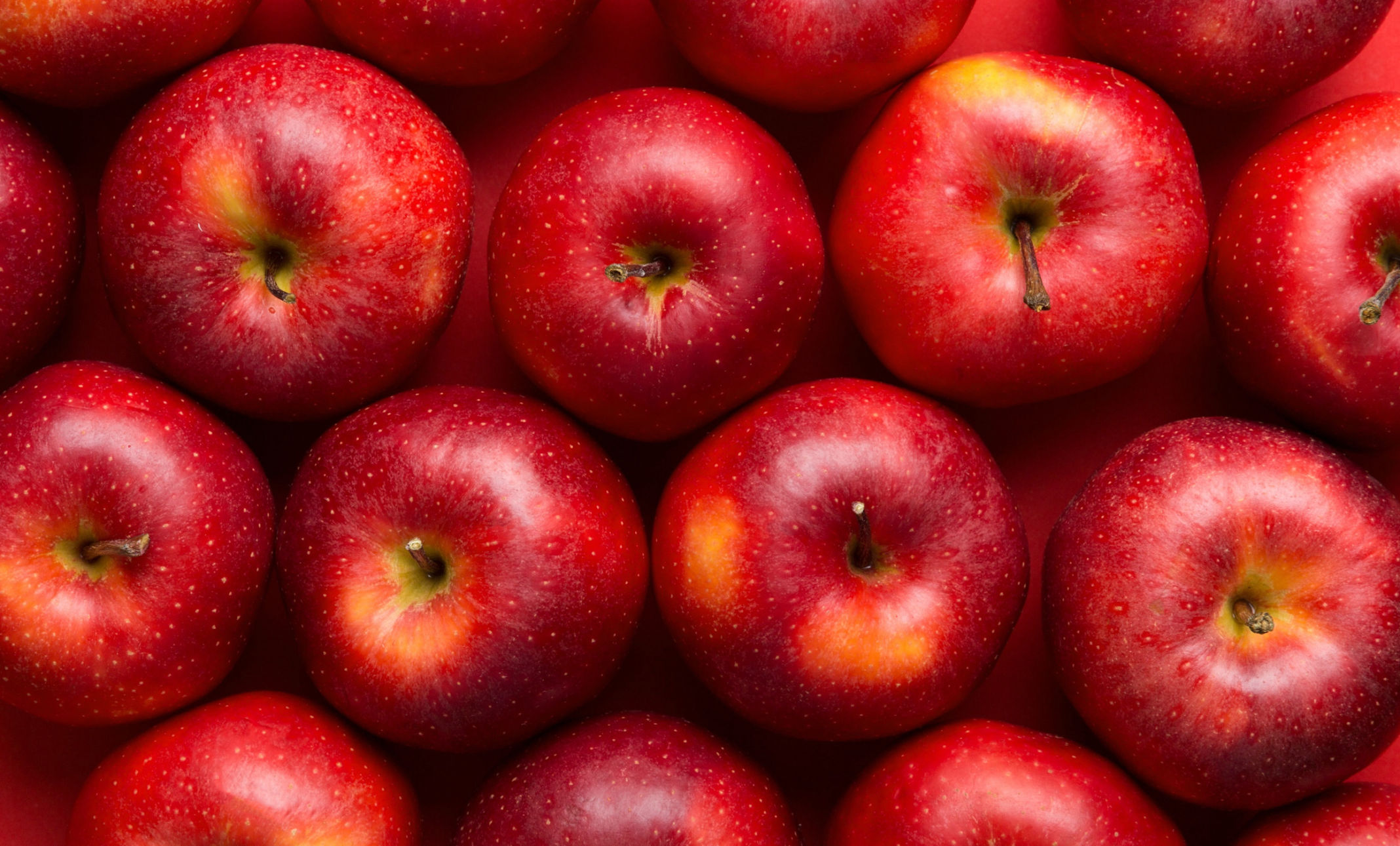
1 apple, many apples
Plurals

1 apple, many apples
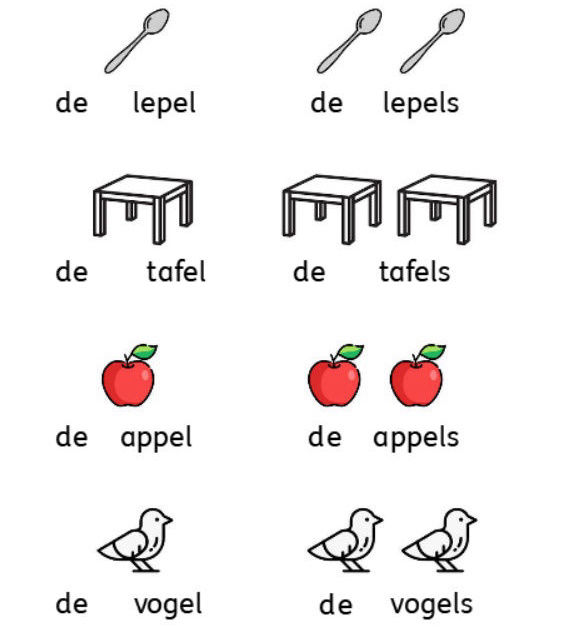
1 the spoon, the spoons
2 the table, the tables
3 the apple, the apples
4 the bird, the birds
<<<
In Dutch, when forming the plural of nouns ending in "-s", the typical plural endings are indeed "-zen" or "-sen". However, the choice between these two depends on the specific noun and sometimes historical or etymological factors.
-zen Plural Ending:
This ending is less common and is usually used with a small group of nouns. The addition of "-zen" often happens when the noun ends with a hissing sound, making it difficult or awkward to add just "-s" for the plural.
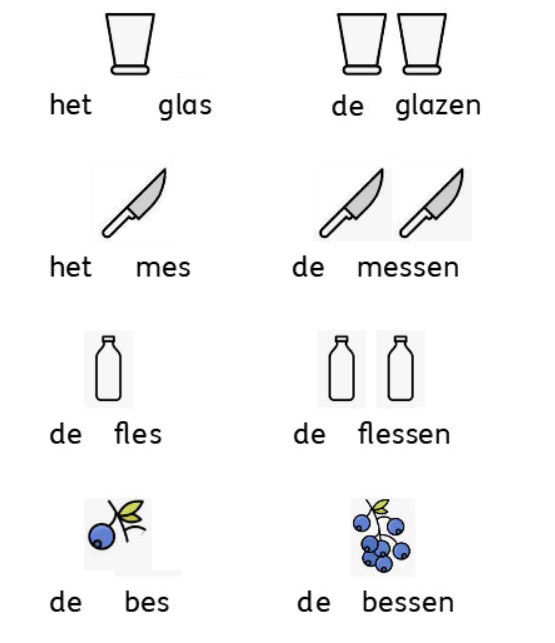
1 the glass, the glasses
2 the knife, the knives
3 the bottle, the bottles
4 the berry, the berries
Notice that with a "het-word" the plural always uses "de"
<<<
The addition of "-en" to form plurals is a standard rule for many Dutch nouns. It's straightforward and does not generally require changes to the stem of the noun.
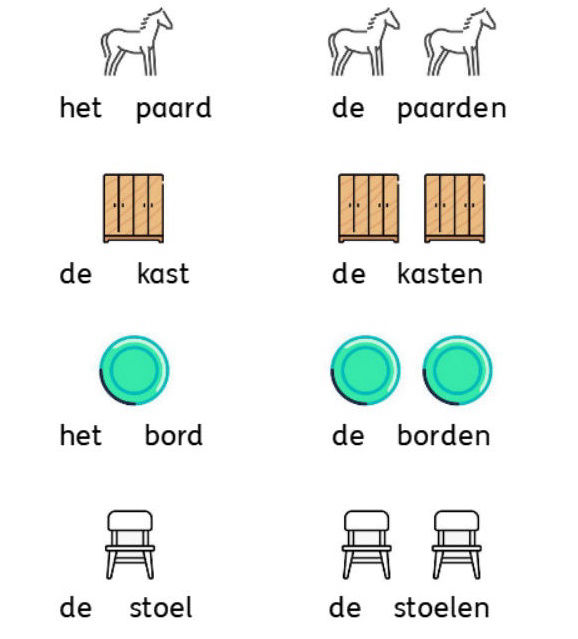
1 the horse, the horses
2 the cupboard, the cupboards
3 the plate, the plates
4 the chair, the chairs
<<<
The use of "-zen" to form plurals in Dutch is relatively specific and primarily appears with nouns where the addition of this ending assists in maintaining or simplifying pronunciation, particularly after sibilant sounds.
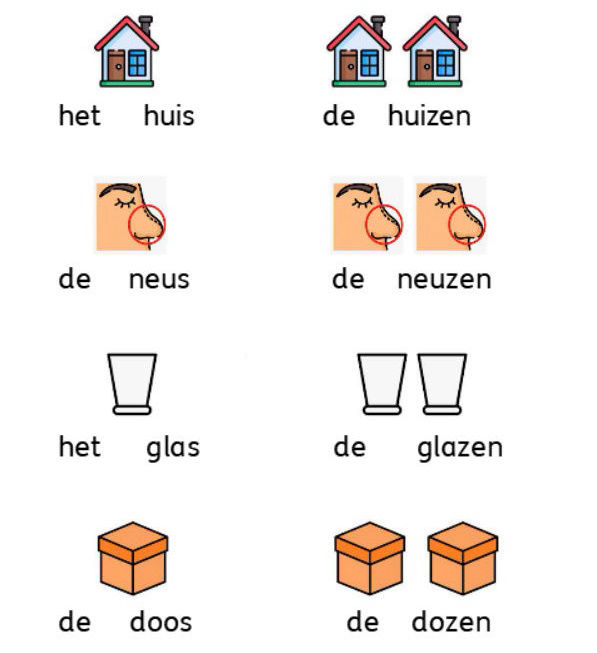
1 the house, the houses
2 the nose, the noses
3 the glass (to drink) , the glasses (to drink)
4 the box, the boxes
<<<
In Dutch, the phenomenon where the final letter of a noun is repeated in the plural form is primarily observed with nouns ending in a consonant that is doubled in the plural. This doubling typically occurs to maintain the short vowel sound present in the singular form.
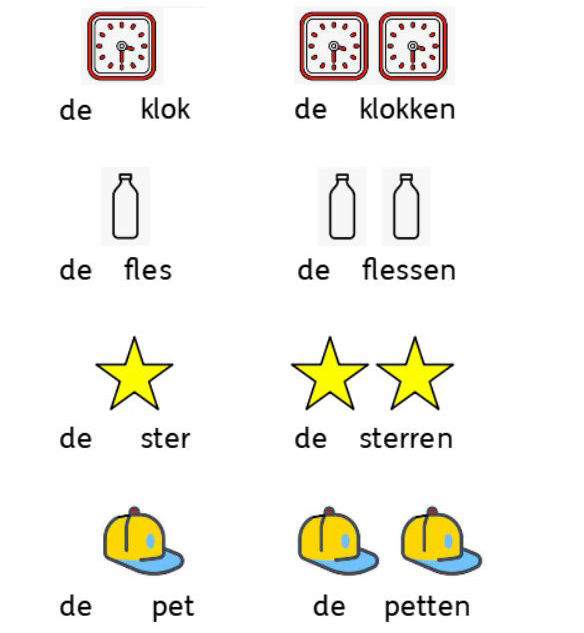
1 the clock, the clocks
2 the bottle, the bottles
3 the star, the stars
4 the cap, the caps
<<<
When teaching about Dutch plurals that end in "-en" and change the spelling of the word, it's important to focus on how these changes help maintain clear and consistent pronunciation. Here’s how you can explain this to learners in simpler terms:
Vowel Changes:
In some Dutch words, the vowels change when making the word plural to keep the pronunciation smooth and easy. For example:
"Raam" (window) becomes "ramen". The 'aa' in "raam" is long, but in "ramen", it's shorter.
Why These Changes Happen:
These changes are made to make sure the word sounds right when more letters are added at the end for plurals. They help keep the way the word sounds consistent whether it's singular or plural.
Examples to Practice:
Words like "bloem" (flower), which becomes "bloemen", show how vowels can change in the plural form. Practice with words like these can help students hear and understand the patterns.
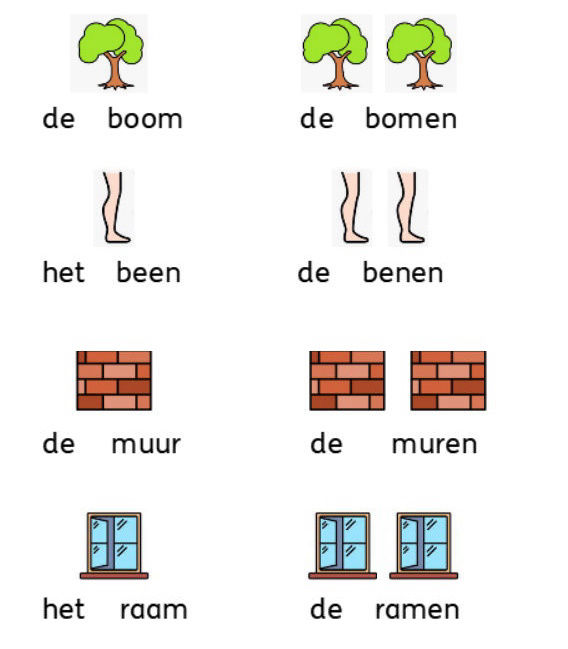
1 the tree, the trees
2 the leg, the legs
3 the wall, the walls
4 the window, the windows
<<<
Dutch also has words to refer to many objects, similar to "many" and "a lot" in English. Here are some commonly used terms in Dutch that serve this purpose
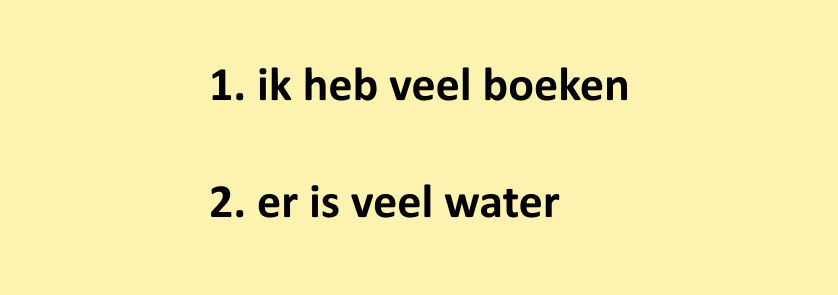
Dutch also has words to refer to many objects, similar to "many" and "a lot" in English. Here are some commonly used terms in Dutch that serve this purpose:
The Dutch word "veel" - This is the direct equivalent of "many" or "a lot" in English and can be used with countable and uncountable nouns. For example:
1. I have many books
2. there is a lot of water
<<<
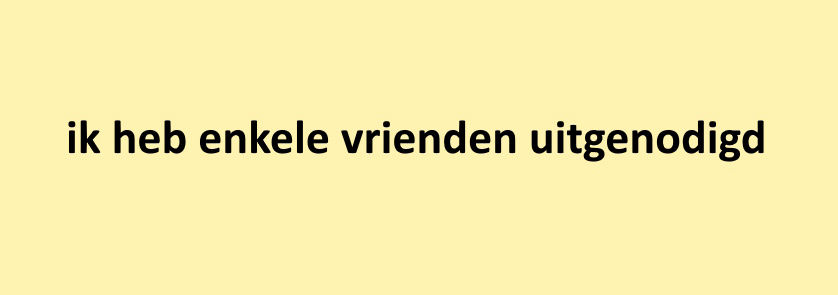
The Dutch word "enkele" - This translates to "several" or "a few" in English and is used for indicating a small but unspecified amount, typically more than two but not a large number:
I have invited several friends
<<<
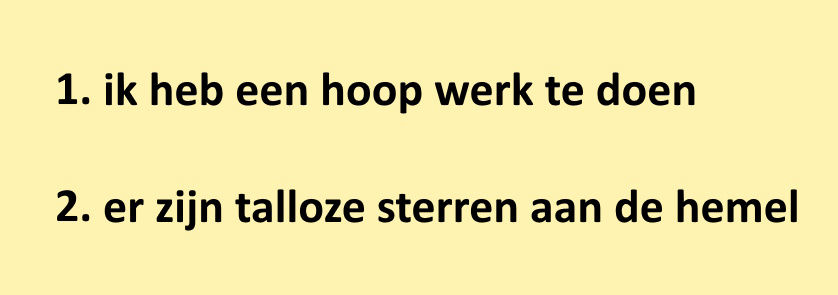
The Dutch expression "heel veel" - Literally translating to "very many," this phrase is used to emphasize a particularly large number.
"Er waren heel veel mensen." (There were very many people.)
The Dutch expression "een hoop" - This is a colloquial way to say "a lot" and is similar to saying "a bunch" in English.
1. I have a lot of work to do
The Dutch word "talloos" - This means "countless" and is used for an indeterminably large number.
2. there are countless stars in the sky
<<<
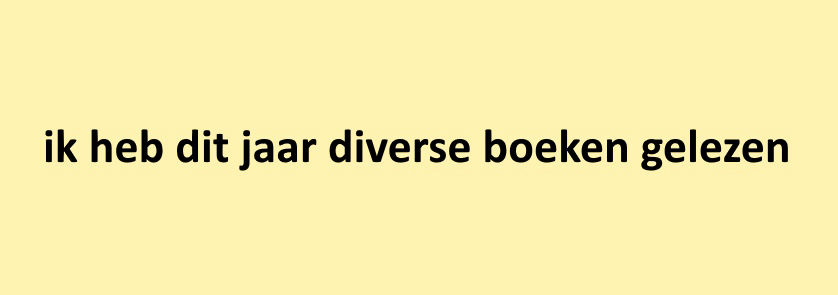
While this can mean "various," it also implies "several" or "a number of" when used with countable nouns.
ik heb dit jaar diverse boeken gelezen
<<<
Test
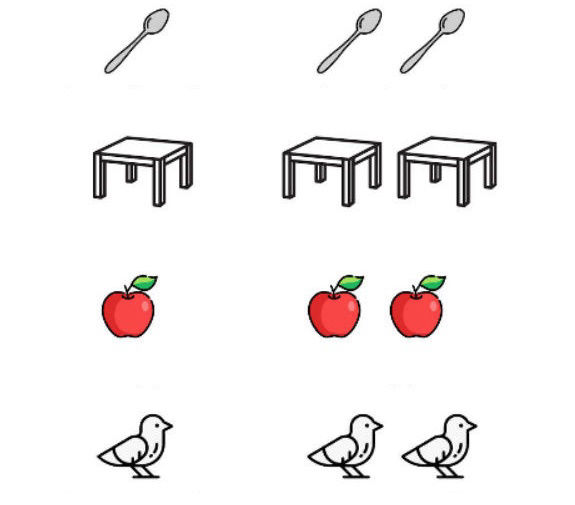
1 ?
2 ?
3 ?
4 ?
<<<
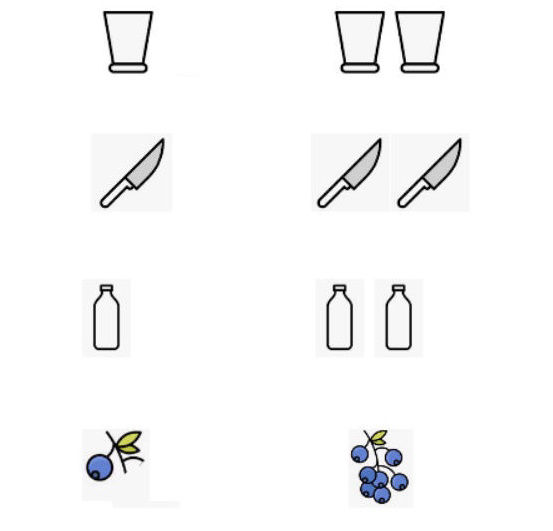
1 ?
2 ?
3 ?
4 ?
<<<
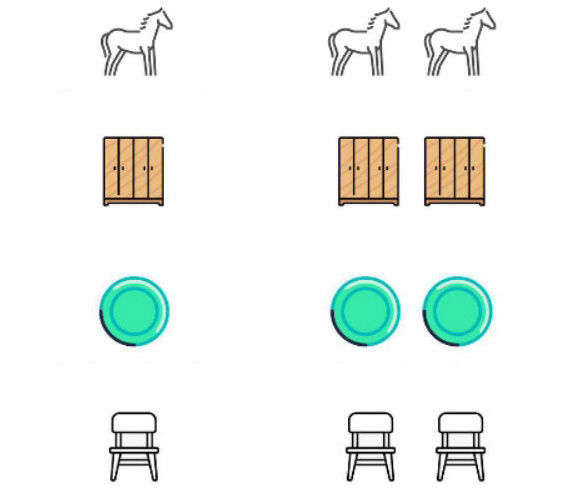
1 ?
2 ?
3 ?
4 ?
<<<
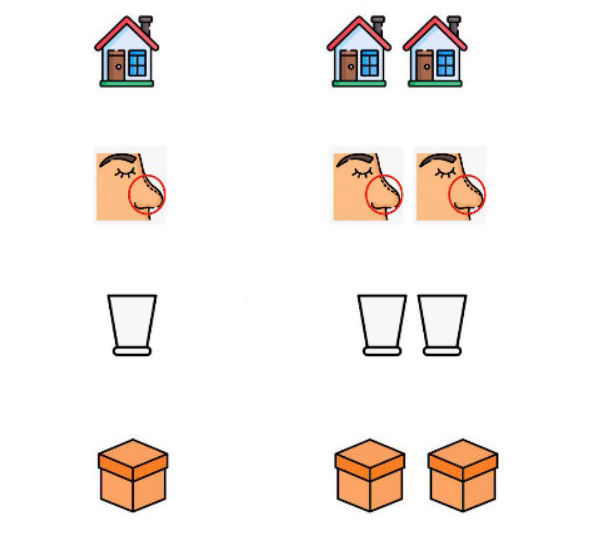
1 ?
2 ?
3 ?
4 ?
<<<
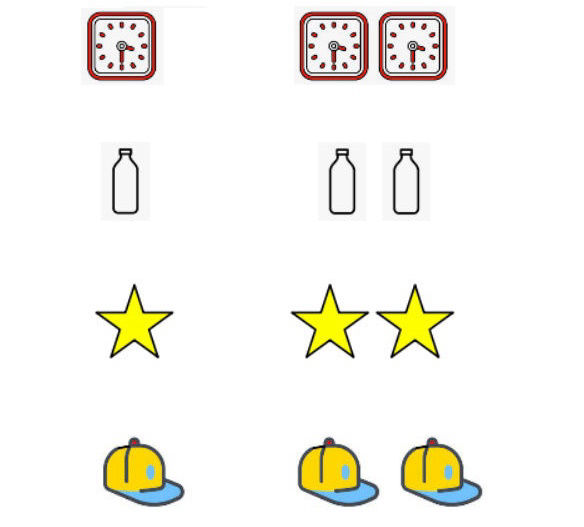
1 ?
2 ?
3 ?
4 ?
<<<
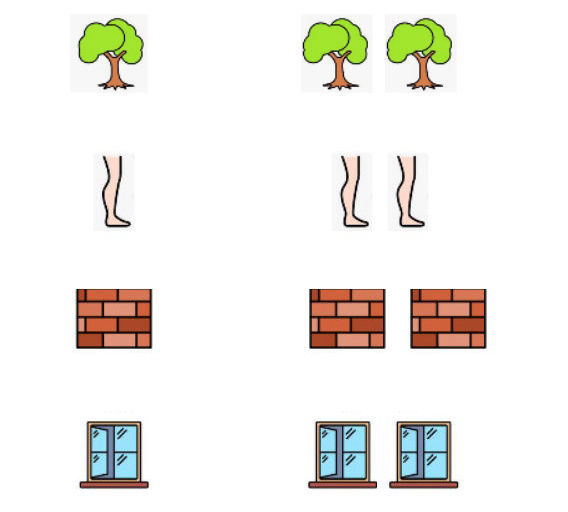
1 ?
2 ?
3 ?
4 ?
<<<
What is the Dutch sentence?
1. I have many books
2. There is a lot of water
3. I have invited several friends
4. I have a lot of work to do
3. I have read several books
The page was started with Mobirise templates